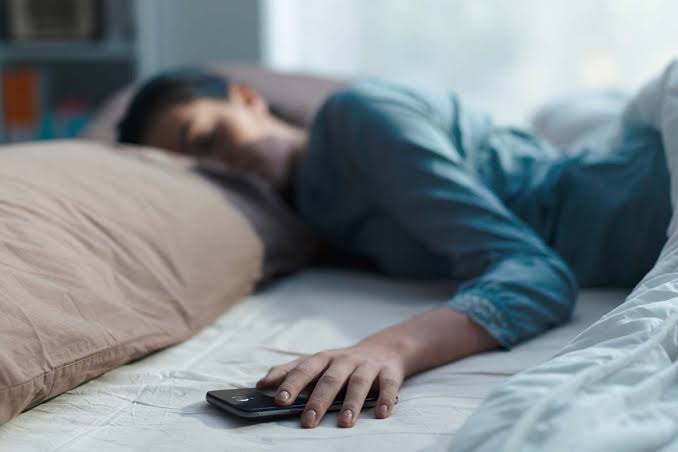What is masturbation?
Masturbation is a common activity, which involves touching the genitals or other sensitive areas of the body for sexual arousal or pleasure.
Masturbation a natural and safe way to explore your body, feel pleasure, and release built-up sexual tension. It occurs among people of all backgrounds, genders, and races.
In fact, one study in older adults estimated that between 27 to 40 percentTrusted Source of women and 41 to 65 percent of men reported masturbating within the past month.
Despite the myths, there are actually no physically harmful side effects of masturbation.
Sometimes, excessive or compulsive masturbation may be considered harmful or lead to other mental health concerns.
Typically, masturbation is a fun, natural, and healthy act.
Benefits of masturbation
Masturbation is a healthy sexual activity. It can benefit your physical and mental health.
There are limited studies on the benefits of masturbation, but there are studies on sexual intercourse and stimulation.
Research and anecdotal reports suggest that sexual stimulation, including stimulation through masturbation, may help you:
Relieve built-up stress
Sleep better
Boost mood
Prevent anxiety and depression
Relax
Feel pleasure and enjoyment
Relieve cramps
Release sexual tension
Improve self-esteem
Have better sex
According to one 2015 study in married women, those who masturbated reported experiencing more orgasms, higher self-esteem, increased sexual desire, and greater satisfaction with their marriage and sex life.
Couples may also mutually masturbate to explore different desires, as well as avoid pregnancy. Self-pleasuring, when compared with partnered sex, also helps you prevent sexually transmitted infections (STIs).
– Masturbation and prostate cancer
Some research suggests that regular ejaculation may lower the risk of prostate cancer, though doctors aren’t exactly sure why.
A 2016 cohort studyTrusted Source of 31,925 participants and 18 years of follow-up found that a lower risk of prostate cancer was associated with a higher frequency of ejaculation. A survey of current literature from 2016 noted that 44 percent of studies analyzed reported a similar link between frequent ejaculation and lower prostate cancer risk.
There’s no evidence, though, that ejaculating regularly protects against advanced prostate cancer, so more research is needed.
– Masturbation during pregnancy
Hormone changes during pregnancy cause some pregnant people to feel heightened sexual desire. Masturbation is a safe way to release sexual tension during pregnancy.
Self-pleasure may also help ease pregnancy symptoms, such as lower back pain. You may feel mild, irregular cramping, or Braxton-Hicks contractions, during and after orgasm.
They should fade away. If the contractions don’t disappear and become more painful and frequent, contact a doctor right away.
Some people with high risk pregnancies are sometimes advisedTrusted Source to avoid sexual activity, as orgasm could potentially increase the risk of early labor. However, research is conflicting.
Side effects of masturbation
Masturbation doesn’t have harmful side effects. However, some people may feel guilty about masturbating or have issues with chronic masturbation.
Masturbation and guilt
Some people may feel guilty about masturbating because of cultural, spiritual, or religious beliefs.
Masturbation is neither wrong nor immoral, but you may still hear messages that self-pleasure is “dirty” and “shameful.”
If you feel guilty about masturbating, you can speak with someone you trust about why you feel this way and how you can move past your feelings of guilt, if you would like to do so.
Therapists who specialize in sexual health may be a good resource to help you overcome feelings of shame or guilt associated with masturbation.
Addiction to masturbation
Some people can develop an addiction to masturbation, or what some call “sex addiction.” However, this term is not recognized in the “Diagnostic and Statistical Manual of Mental Disorders” (DSM-5) and is not considered by some to be a true addiction.
You may be spending too much time masturbating if masturbation causes you to:
skip chores or daily activities
miss work or school
cancel plans with friends or family
miss important social events
Masturbating may be considered too much if it causes harm to your relationships and other parts of your life or if it interrupts your work or studies.
It may also hurt your romantic relationships and friendships because you don’t spend as much time with your loved ones as you used to or you don’t pay attention to their needs.
If you’re worried you may be masturbating too much, consider speaking with a doctor or a counselor about ways to cut down.
If you would like to masturbate less, consider talk therapy. You could also try cutting down by replacing masturbation with other activities. Next time you have an urge to masturbate, you can try:
Going for a run
Writing in a journal
Spending time with friends
Going for a walk
Myths about masturbation
There are several common myths about masturbation that have not been proven by scientific research.
For example, masturbation does not cause:
Infertility
Dehydration
Hormonal imbalances
Changes in the size or shape of the penis
Decreased sperm count
Vision loss
Acne
Hairy palms
Erectile dysfunction
Low libido
Some people may also believe that masturbation can negatively impact romantic relationships or may indicate that one partner is experiencing sexual dissatisfaction.
However, though excessive masturbation can have negative effects, many people find that masturbating alone or with their partner can actually enhance their sex life.
Furthermore, masturbation may be associated with several health benefits and is considered one of the safest forms of sexual activity as it does not have a risk of pregnancy or STIs.
Does masturbation cause a decrease in sexual sensitivity?
For those who have sexual dysfunction, enhanced stimulation — including masturbation — can help increase sexual desire and sensitivity.
In fact, one 2018 review published in the journal Sexual and Relationship TherapyTrusted Source reported that vibrator use may be beneficial for the treatment of erectile or ejaculatory dysfunction and anorgasmia, or difficulty reaching orgasm. According to the review, vibrator use may also be associated with improvements in sexual desire and sexual function for both males and females.
Masturbation may affect sensitivity during sex for people with a penis because of their technique. Research from 2022 has shown that too much stimulation on a penis during masturbation can decrease sensation.
Sometimes referred to as death grip syndrome, this can make it more difficult to reach orgasm during sexual intercourse.
If you use a tight grip, try changing your technique during masturbation to restore sensitivity levels during sex.
Frequently asked questions
What are the effects of masturbation?
Sexual activity, including masturbation, is linkedTrusted Source to the neurotransmitters dopamine and oxytocin in the brain, which are involved in regulating mood and increasing feelings of pleasure.
Sexual satisfaction has also been associated with many other benefits, including decreased stress levels, improved self-esteem, and enhancedTrusted Source life satisfaction in older adults.
Are there any good reasons for abstaining from masturbation?
Though masturbation can be a healthy, pleasurable, and natural activity, some people may choose to abstain from masturbation when it becomes compulsive or begins to interfere with other activities or relationships. Additionally, some may also decide to abstain from masturbation for personal or religious reasons.
What’s a healthy level of masturbation?
According to the International Society for Sexual Medicine, there is no “normal” frequency for masturbation. While some people may masturbate daily, weekly, or monthly, others may choose not to masturbate at all.
As long as it doesn’t negatively affect your relationships or interfere with other activities like school or work, masturbating as frequently or infrequently as you’d like is safe and healthy.
Source: Healthline
WARNING: If You Are Not 18+, Don’t Click The Link Below 👇🫣
https://disloyalmoviesfavor.com/kx6iepv2qm?key=6c14bd1d68e1eba721851f19778f5efe
https://poawooptugroo.com/4/8902554
Please don’t forget to “Allow the notification” so you will be the first to get our gist when we publish it.
Drop your comment in the section below, and don’t forget to share the post.
Never Miss A Single News Or Gists, Kindly Join Us On WhatsApp Channel:
https://whatsapp.com/channel/0029Vad8g81Eawdsio6INn3B
Telegram Channel:
https://t.me/gistsmateNG
















Great enlightenment🤣
God bless you.
Very educative💕💋❤️😘